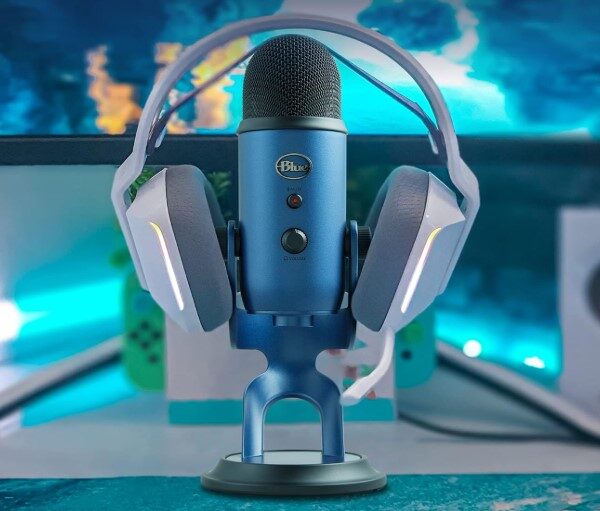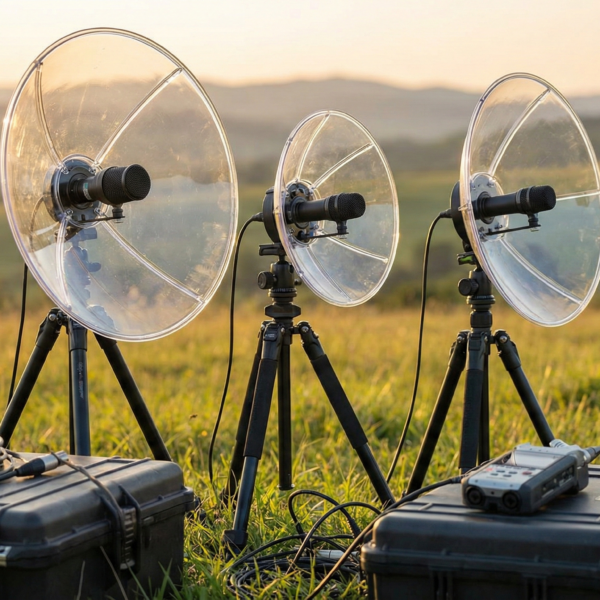Business Podcast Questions should be made carefully.
Did you know? that 80% of podcast listeners tune in to all or most of every episode they start?
And Around 73% of consumers are more likely to trust a business or individual if they engage through long-form audio content, like podcasts, rather than traditional marketing channels.
This is due to podcasting’s private and intimate environment, which allows hosts to gradually establish genuine bonds with their listeners through genuine dialogue, personal stories, and experiences.
Podcasts also take use of our propensity for multitasking; listeners can get useful content while doing chores, working out, or commuting without compromising their productivity.

Consider this:
how often have you heard someone claim to have “binged” on a podcast episode or to have listened to it obsessively while driving to work?
Podcasts give creators the opportunity to delve deeply into important discussions, concepts, or professional insights rather than just posting fast, eye-catching social media content.
Podcasts are easy to include into people’s hectic schedules, unlike blogs or films that need complete visual attention. As a result, they have emerged as one of the most rapidly expanding platforms for business expansion and personal branding.
What really sets podcasts apart? Loyalty.
The worst part is that podcast listeners are usually devoted. They pay attention for more than a few minutes. Rather, they interact weekly, developing a sort of “relationship” with the host.
A study by Edison Research found that 80% of podcast listeners finish most or all of an episode, often tuning in weekly.
This builds a real bond with the host—like having a mentor or trusted friend in your ear.
But here’s the catch: it has to be done right.
Poor audio quality, lack of structure, or boring content? Listeners won’t come back.
But nail it, and podcasting becomes an unmatched tool for generating leads, boosting credibility, and forming authentic connections—whether for business or personal growth. 🎙️
How to ask great Business Podcast interview questions
Before they and the interviewer start building a relationship, most interviewees naturally feel a little anxious at the start of the episode.
Although it’s common for guests to feel self-conscious at first, the host should take leadership by asking questions that promote a relaxed atmosphere where the conversation flows organically from one person to the next.
Once your podcast guest has “warmed up,” so to speak, you may ask questions that will help listeners the most and concentrate on their area of expertise.
Here are our best recommendations for organizing podcast episodes, giving your show more substance, and honing your interviewing techniques:
1. Research Your guest
It’s important to know a little bit about your guests in advance, even though we don’t recommend hiring a private investigator to check their backgrounds.
This essentially entails examining their blog, if they have one, and social media accounts: Instagram and Facebook should provide you the most clues about the guest’s goals and values, while LinkedIn will give you their job title and professional data for a brief profile. You may learn a lot about a person’s groups on Twitter as well.
2. Follow your curiosity
Making great business podcast interview questions takes preparation, but don’t overdo it—
nobody wants a robotic conversation.
A rigid script kills the natural flow, making the show feel like an interrogation rather than an engaging discussion.
Instead, treat your question list as a guide, not a rulebook.
I’ve found that curiosity leads to the best moments.
If a guest says something unexpected,
jump on it
—even if it’s not in your notes. Some of my best interviews happened when I followed a guest’s unexpected insight rather than sticking to a script.
But there’s a balance—you don’t want to go completely off-track and lose your audience.
Another mistake?
Asking questions you already know the answer to. It sounds forced and adds zero value.
Listeners can tell when you’re fishing for a rehearsed response rather than an authentic one.
Instead, dive into what genuinely interests you—your passion will make the conversation natural and engaging. 🎙️
3. Ask follow-up questions
You want your podcast interview to feel like a natural conversation, not a robotic Q&A.
That means ditching the rigid question-response-next-question format.
Instead, engage with your guest—listen actively and fire off follow-up questions when something interesting pops up.
For example, if your guest drops a surprising fact—like “90% of podcasters quit after three episodes” (source: Amplifi Media), don’t just nod.
Dig deeper!
Ask: “Why do so many podcasters fail? What’s the biggest mistake they make?” These unscripted moments often reveal the real gold 🎙️
—stories, insights, and emotions that keep listeners hooked.
Strategies for posing follow-up inquiries:
| Key Point | Explanation |
|---|---|
| Don’t Allow Your Thoughts to Stray | Don’t allow your thoughts stray during a podcast so you can know how to ask the next question or even a follow-up inquiry. Rather, you should continue to concentrate on your visitor. |
| Ask the Same Question in a Different Phrase | Ask the same question in a different phrase if necessary. |
| Listen Carefully | As your guest speaks, be sure to listen carefully and draw connections between their statements. You can use this to help your visitors comprehend what you’re saying or to guide the conversation in the direction you want it to go. |
| Show That You Are Paying Attention | It’s also a great way to show that you are paying attention. |
| Use Caution | Use caution while employing this tactic because you don’t want to come across as a detective attempting to uncover someone’s dishonesty. |
4 listening Carefully
Let’s be straightforward.
Some Guests will be boring. If you’re bored with a guest, trust me, your audience feels it too. It’s tempting to drift off while they ramble, but zoning out is a disaster.
The moment they throw a curveball question or expect an engaged response, you’ll be caught off guard—hurting your credibility, your guest’s trust, and your show’s impact.
The secret? Active listening.
It’s not just nodding along; it’s ditching distractions, resisting interruptions, and mirroring key points to show you’re tuned in.
I’ve learned this the hard way—once, I half-listened to a guest, only to realize too late they had dropped a golden nugget of insight that I totally missed. 😅 Never again.
Studies back this up: Active listening boosts speaker trust by 40% (Harvard Business Review). It makes guests feel valued, which translates to better interviews, deeper conversations, and an audience that stays hooked.
In short—listen like your show depends on it, because it does. 🎙️
Advice: just focus on your visitor.
Listen for pearls of wisdom while they talk, and write down a key word to help you remember what they said.
Later, you can expand on what they say and ask the appropriate questions based on what caught your attention.
When they stop talking, you can restate what they said and then follow up with original questions about it. This will make you seem like a really good listener and professional.
Another piece of advice:
if you do this correctly, you can make a dull visitor sound amazing, which benefits everyone.
5 Structure The interview
How should you go about planning your interview? Well, you want to start strong and finish strong, but you also want to keep people listening until the end.
Here’s a guideline from professional podcast hosts:
- Start strong. Starting strong encourages people to keep listening. Examples of the types of business podcast questions you can ask to ensure this are:
- Could you explain your function and the work your organization accomplishes in 60 seconds? Setting a 60-second time limit encourages guests to maintain focus and refrain from droning.
- What insightful counsel will you impart to us today? The knowledgeable visitor assures your audience of this.
- Make your introductory inquiry enjoyable. Use something humorous to set the mood for a good time. It breaks the ice as well. For instance, “Working Without Pants” is a podcast about entrepreneurs hosted by professional podcaster Jake Jorgovan, who also owns a business-to-business podcasting agency. “Are you wearing pants right now?” is the first thing he asks visitors. It is always certain to make people laugh.
- Body. The time between the start and finish of the broadcast must remain valuable to prevent listeners from leaving. The “meaty” list of questions that you know your audience is anticipating should be asked at this point.
- “Just in case” questions. Not every visitor is interacting. The truth is that not all of them will be as engaging as we would like. It’s also possible that someone will start down a path you don’t want them to take. It’s a good idea to have a few go-to questions ready in both situations, either to turn a stale conversation around or to refocus it.
- Finish with a bang. Strong endings entice listeners to come back for more. “If you could give your 20-year-old self some great advice, what would it be?” is a good example of an end-questions. Quick-fire questions such as “Who has been your most profound mentor?” or “What book made the biggest impression on you?” are frequently used by podcasters.
10 Business Podcast Interview categories & questions
The real magic in conducting a business podcast interview occurs when your guest provides personal anecdotes that genuinely connect with your audience. But how do you see past the obvious to seize those unforgettable and enlightening moments? Asking the correct questions is the key to establishing a real relationship, eliciting knowledge, and revealing personality.
Here are the 10 Types of Business Podcast Questions you can ask in a Nutshell:
| Type of Question | Description |
|---|---|
| 1. Warm-Up with Engaging Ice-Breakers | Lighthearted or personal questions that ease nervousness and set a friendly tone for the interview. |
| 2. Explore Background and Industry Context | Questions focused on the guest’s professional background and insights into their industry. |
| 3. Personal Challenges and Turning Points | Inquiries about specific challenges faced in the industry that provide connection and relatability. |
| 4. Celebrate Success and Achievements | Highlighting moments of triumph to inspire the audience and showcase the guest’s pride in their work. |
| 5. Business Questions, How-To Advice | Actionable insights or “how-to” tips that keep the audience engaged. |
| 6. Add a Touch of Fun | Questions that introduce humor and keep the conversation light-hearted. |
| 7. Look to the Future | Future-focused questions that stimulate interesting discussions and showcase thought leadership. |
| 8. Personal Interests or Passions | Questions about personal interests that create a more comprehensive picture of the guest. |
| 9. Controversial or Thought-Provoking Questions | Challenging questions that elicit divisive viewpoints and provoke deeper discussion. |
| 10. Closing Questions | Strong closing questions that provide a valuable takeaway and leave a lasting impression. |
Let’s examine some useful techniques and important question kinds to help you get the most out of your interviews. These strategies help improve your interviews and engage your audience, regardless of your level of experience as a podcaster.
1. Warm-Up with Engaging Ice-Breakers
Start with a few lighthearted or personal questions. It helps ease any nervousness and sets a friendly tone for the interview. Not only do these questions help guests relax, but they can also give listeners a glimpse of the guest’s personality. Consider these examples:
- “What inspired you to get into [industry]?”
- “If you could describe your business journey in one word, what would it be?”
These questions will act as a gentle lead-in and will give your guests a comfortable space to start talking about themselves. Plus, this approach will help you warm up before diving into deeper topics.
2. Explore Background and Industry Context
Understand your guest’s professional background and insights into the industry they’re part of. This is crucial. This is a terrific method to build a closer relationship with them and make the conversation more intriguing and captivating. By focusing on your guest’s background, education, and personal life, these kinds of questions give your audience background knowledge and context that can help them understand your guest better.
This type of question isn’t just about facts — it’s gonna be about capturing their journey and providing listeners with context. Here’s how you can phrase it:
- “Where did you grow up and why did you decide to go to [specific college/university]?”
- “What did you study in school, and why did you choose that field?”
- “What was the spark that first got you interested in your current industry?”
- “Who was the most influential person during the early stages of your career?”
- “When you’re not busy doing [current role], what’s your favorite thing to do?”
- “What’s something that most people don’t know about you?”
- “What’s the biggest lesson you’ve learned since starting in this field?”
- “Looking back, what’s one challenge that shaped your approach to business today?”
- “What has been your favorite job on your career path?”
- “Can you share your morning routine?”
- “Did you have any childhood fears?”
- “If you could interview anyone from your life either living or dead, but not any celebrities, who would you choose, and why?”
- “If you could write a book, what would it be about?”
These questions add value by linking past experiences to the broader conversation, giving listeners real-world insights. And when these stories connect with current industry trends, they become even more powerful.
3. Personal Challenges and Turning Points
Ask questions that are particular to your industry. It is a terrific approach to learn more about your guest’s area of expertise and establish a close bond with your target audience. These kinds of inquiries delve into the particular difficulties and possibilities that your guest and the podcast audience encounter.
The goal of your discussion and the particular problem you’re examining should be taken into account when selecting industry-specific questions for each audio participant. You can ask your podcast guests a lot of questions that are formed by the conflict.
Everyone loves a good success story, but if people hear about the obstacles along the way makes it will get even more relatable.
- “What was one of the toughest decisions you had to make in your business?”
- “Can you share a moment when you felt like giving up? How did you move past it?”
- “Can you provide an overview of the biggest challenge facing your industry right now?”
- “What are some of the most interesting developments in your industry within the last few months?”
- “How have you seen technology or other trends impact your industry in the last year?”
- “What are some of the most innovative or exciting projects that you’ve been a part of in your industry over the last year?”
When guests share these pivotal moments, they provide listeners with practical takeaways and a sense of connection, as many may face similar struggles.
4. Celebrate Success and Achievements
Highlight moments of triumph gives your guest a chance to share what they’re proud of and can inspire your audience. Frame these podcast questions to make your guest more interested in talking:
- “What’s a recent win that you’re especially proud of?”
- “Can you share a story about a milestone moment in your career?”
Success stories aren’t just about achievements; they’re a way for your listeners to envision possibilities and feel motivated. Plus, they provide a refreshing change of pace from more reflective topics.
5. Business Questions, How-To Advice
Your audience craves actionable insights, so dedicating part of the interview to practical advice or “how-to” tips keeps them engaged. These questions will allow your guest to share expertise directly:

- “What advice would you give someone just starting in [industry]?”
- “What’s a common mistake you see people making in your field, and how can they avoid it?”
- What is a common myth about your industry?
- Do you have any regrets about how you started out?
- What do you believe that many others would disagree with?
- What is a challenge that you are facing right now and how are you overcoming it?
- If you could go back five to ten years, what advice would you give your younger self?
- Who has been your most influential professional mentor?
- What book has influenced you the most?
- What book have you most often gifted to others?
Questions like these will concrete, useful information that your listeners can apply in their own lives, making the interview both inspiring & educational.
6. Add a Touch of Fun
Every interview can benefit from a bit of levity, so don’t shy away from including funny podcast questions on business or slightly offbeat prompts. These moments of humor give the conversation a relaxed vibe and keep listeners entertained:

- “If you weren’t in this industry, what do you think you’d be doing?”
- “What’s a surprising fact about you that most people don’t know?”
A dash of humor here and there can make your podcast stand out and show the human side of your guest, making the experience memorable for everyone involved.
7. Look to the Future
Asking your guests future-focused questions is a terrific approach to give them a peek into the future and start stimulating conversations.
In addition to generating intriguing subjects for your audience, these kinds of questions assist in examining your guest’s future and their industry.
Asking questions about the future also fosters the growth of thinking leadership. As a podcast host, you have the chance to share your own thoughts on the future when you ask your guests what they think.
Both the host and the guest are positioned as thought leaders through this kind of conversation.
You may want to utilize the following specific future-oriented questions in your interview podcasts:
- “Where do you see yourself and your business in the next five years?”
- “What’s a trend in the industry you think will be a game-changer?”
- What long-term objectives do you hope to achieve in your career?
- Which opportunities do you think your industry will have the most in the future?
- Which breakthroughs or trends do you believe will have the biggest impact on your sector going forward?
- In the next five to ten years, how do you envision your position or your business changing?
- What do you think your industry will look like in the future, and how do you intend to stay on top of developments?
- What guidance would you provide someone hoping to maintain their professional success and relevance over time?
Business Future-oriented podcast questions help conclude the interview on a high note, giving listeners something to anticipate and follow up on.
By weaving these question types into your podcast, you not only foster an engaging conversation but also create a space where your guest can shine. The result? A podcast episode that’s packed with insightful, relatable, and, yes, unforgettable stories.
8. Personal interests or passions
A richer interview experience can be created and a more comprehensive picture of your visitor can be obtained by asking personal interest questions.
Inquiring about your guest’s interests, passions, and pastimes outside of their work life might help you establish a stronger connection with them.
A great interview, in my opinion, doesn’t begin with a litany of inquiries about the candidate’s interests.
Rather,
I believe it’s crucial to interject these kinds of podcast interview questions as the topic naturally unfolds.
- How do you like to spend your free time?
- What do you enjoy reading when you are on the beach?
- What area of your personal life influences your work?
- How do you balance your personal and professional commitments?
- What have you learned in business that’s helped you become a better person?
- What are some of the most rewarding or meaningful experiences you’ve had outside of your professional life?
You humanize your visitor a little more and establish a stronger bond with the audience when you delve into their personal life. I find it interesting to hear about a guest’s personal and professional experiences since it lends credibility to their viewpoints.
9. Controversial or thought-provoking questions
You can observe how divisive viewpoints increase interaction if you spend any time on social media, particularly LinkedIn.
However, how can one obtain these thought-provoking viewpoints in a podcast interview?
You must pose challenging or thought-provoking questions to your podcast guests and then look for their responses.
But, in my opinion,
you should dive farther. A mere quote shouldn’t be enough to absolve your podcast guest. You need to gain more context and ask follow-up podcast questions.
Here are a few examples of contentious or thought-provoking questions you could use in podcast interviews:
- What are your thoughts on [controversial or divisive topic] in your industry?
- There’s a group of people in the industry that believe in [controversial topic], how do you feel?
- What helped shape your opinion on [controversial topic]?
- Why is [controversial topic] so controversial? Why do you feel it’s created such an uproar?
- How is your team handling [controversial topic] today?
- How do you handle disagreement or conflicting viewpoints about [controversial topic]?
Asking the difficult questions is necessary if you want more divisive answers. Additionally, after your podcast guest responds, be sure to follow up to fully grasp their stance.
After all, the constructive discussion is what makes podcasting so wonderful.
10. Closing questions
Don’t undervalue the impact of a strong closing question as your interview draws to a close. These concluding questions provide your audience with a valuable takeaway in addition to giving your guest an opportunity to leave a lasting impression. Try posing queries such as:
- “If there’s one piece of advice you want our listeners to remember, what would it be?”
- “What’s the next big step for you or your business that we should watch out for?”
- What’s one question you wish I’d asked you, and how would you have answered?
- Where can people go to find out more about you online?
These concluding business podcast interview questions help bring everything together, provide your visitor with a chance to think, and leave the audience with a motivational or useful idea. Like your podcast’s signature, a compelling ending sticks in the listener’s mind and highlights the importance of the discussion.
Conclusion
How frequently do you hear a podcast with forced or scripted questions? Asking the correct questions, the ones that reveal real, unforgettable experiences, is what the finest podcasts do. You’re not only providing your audience with value when you strike that balance, but you’re also establishing yourself as a competent and considerate interviewer.
Therefore, the next time you have a guest, don’t forget to include some warm-up questions, follow up with thought-provoking industry inquiries, and add a little comedy. Both your guests and your audience will appreciate it.
Podcasting is a different game, and without a precise blueprint, the game will get tougher midway. Grow your podcast from scratch with Zero Audience and learn about how successful podcasters cracked the code by winning our Free Guide with step by step Guidelines.
Get your complete podcast equipment setup by visiting Podcast Equipment Bundle. Don’t let the side projects kill your time. Get in touch with podcasting services and experts those will save you tons of time at Podcast Production Services.
With that being said, Let’s connect with all such free and paid tool/services you might need knowingly or unknowingly to fuel your growth. Here’s 21 BEST AI TOOLS AND PLATFORMS TO GROW YOUR PODCAST AND CONTENTS. There are some bonus tools in the end too to make your day to day life easier.
There are some affiliate links on this page that will redirect you directly to the original products and services. Also by buying through those links you will be supporting us. So thank you ^.^
Related Posts
Here is the list of blog posts related to podcast questions on different topics:
- Good Podcast Questions About Relationships to Ask
- Funny and Interesting Podcast Questions for Friends
- Best Business Podcast Interview Questions to Ask
- Podcast Questions: Guide on How to Interview
- Funny Podcast Questions: Make Your Listeners Laugh Out Loud
- Is it worth starting a podcast in 2025?
- How to do Podcasting with Iphone
- Maono Microphone Review
- Best Podcast Tables



